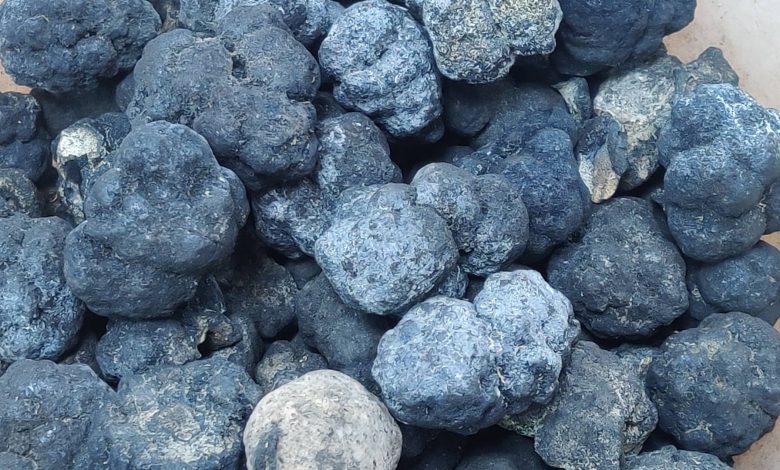Trump signs executive order to fast-track deep-sea mining industry

Critical minerals such as cobalt, nickel, copper and manganese can be found in potato-sized nodules at the bottom of the seafloor.
Pallava Bagla | Corbis News | Getty Images
U.S. President Donald Trump has signed a sweeping executive order to jump-start the controversial practice of deep-sea mining, seeking to offset China’s dominant position in critical mineral supply chains.
The administration is seeking to fast-track the pursuit of strategically important minerals such as nickel, copper and rare earth elements from the seabed in U.S. and international waters.
“The United States has a core national security and economic interest in maintaining leadership in deep sea science and technology and seabed mineral resources,” Trump said in the executive order Thursday.
The unilateral action is intended “to counter China’s growing influence over seabed mineral resources,” strengthen partnerships with allies and ensure U.S. firms are “well positioned” to support those interested in developing seabed minerals responsibly.
The order, which critics say contradicts global efforts to adopt regulation, directs the Trump administration to expedite mining permits under the Deep Seabed Hard Minerals Act of 1980.
It also seeks to establish a process for issuing permits along the U.S. outer continental shelf and, notably, calls for the expedited review of seabed mining permits “in areas beyond national jurisdiction.”
What is deep-sea mining?
The practice of deep-sea mining involves using heavy machinery to remove minerals and metals from the seabed, where they build up into potato-sized nodules. The end-use of these minerals are wide-ranging and include electric vehicle batteries, wind turbines and solar panels.
Advocates of the practice say deep-sea mining could be a highly lucrative industry that ultimately reduces the reliance of large mining operations on land.
Scientists, however, warn that the full environmental impacts of deep-sea mining are hard to predict. Environmental campaign groups say the practice cannot be done sustainably and will lead to ecosystem destruction and species extinction.
Environmental activists calling for an international moratorium on deep-sea mining.
Sopa Images | Lightrocket | Getty Images
“We condemn this administration’s attempt to launch this destructive industry on the high seas in the Pacific by bypassing the United Nations process,” Greenpeace USA’s Arlo Hemphill said on Friday.
“This is an insult to multilateralism and a slap in the face to all the countries and millions of people around the world who oppose this dangerous industry,” Hemphill said in a statement.
The International Seabed Authority (ISA), a little-known U.N. regulator that oversees deep-sea mining, has for years been seeking to resolve deep-sea mining’s murky future before any mining activity begins. It is considering standards to regulate the exploitation and extraction of polymetallic nodules and other deposits on the ocean floor.
Negotiators have been trying to ensure formal rules are in place by the end of 2025 — leading critics of Trump’s executive order to question its timing.
The ISA was established under the 1982 United Nations Convention on the Law of the Sea (UNCLOS), a treaty which the U.S. has not ratified.
The agency is responsible for both the exploitation and conservation of an area that covers around 54% of the world’s oceans. ISA Secretary-General Leticia Carvalho told CNBC last year that it remains feasible ISA member states can agree on some form of regulation by the end of 2025.
Unexpected country alliances
“This alignment of the private sector with the U.S. administration could escalate global geopolitical tensions over critical minerals and control of international waters,” analysts at Eurasia Group said in a research note published Thursday.
“U.S. dismissal of UN processes will probably lead to unexpected country alliances in opposition,” they added.
Gerard Barron, chairman and CEO of The Metals Company, hopes that his company will be able to mine the seafloor for nickel, cobalt, manganese in the Pacific Ocean.
Carolyn Cole | Los Angeles Times | Getty Images
For instance, actions taken by the U.S. and Canada-based deep-sea mining exploration firm The Metals Company have been criticized by more than 40 countries, including China, Russia and Britain, among others.
“The concern centers on the U.S. abruptly bypassing previously agreed processes on deep-sea mining,” they added.



